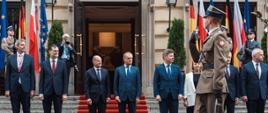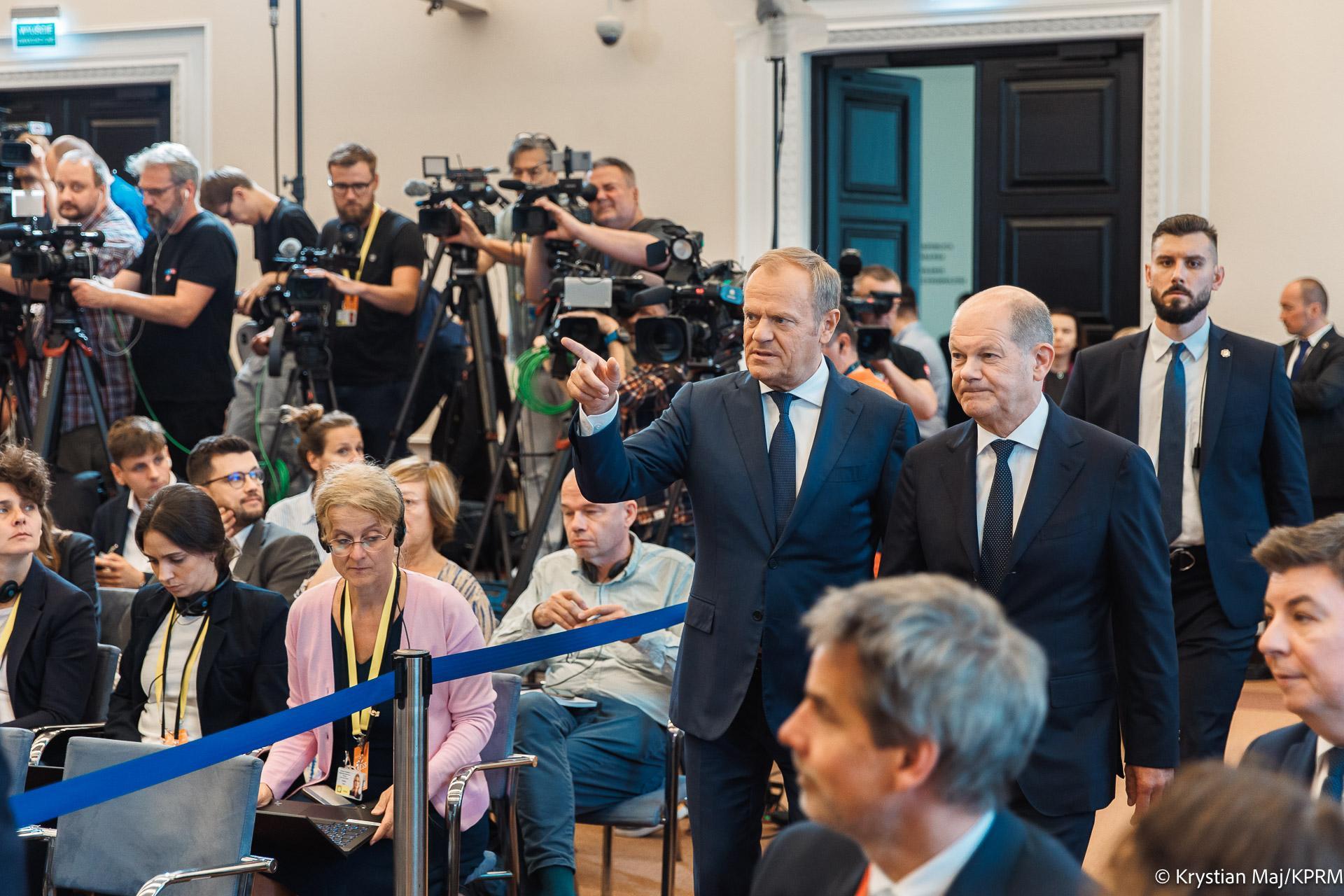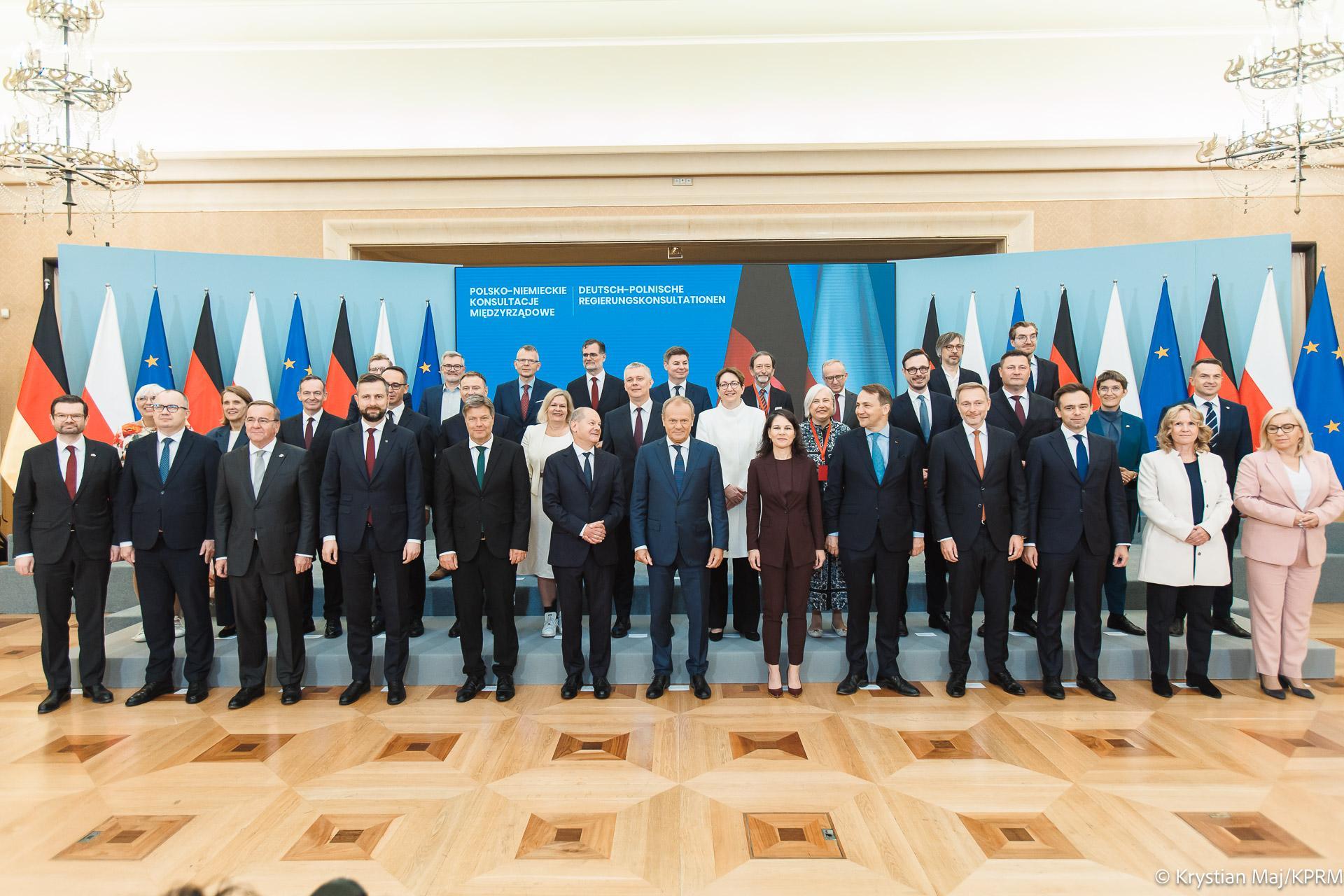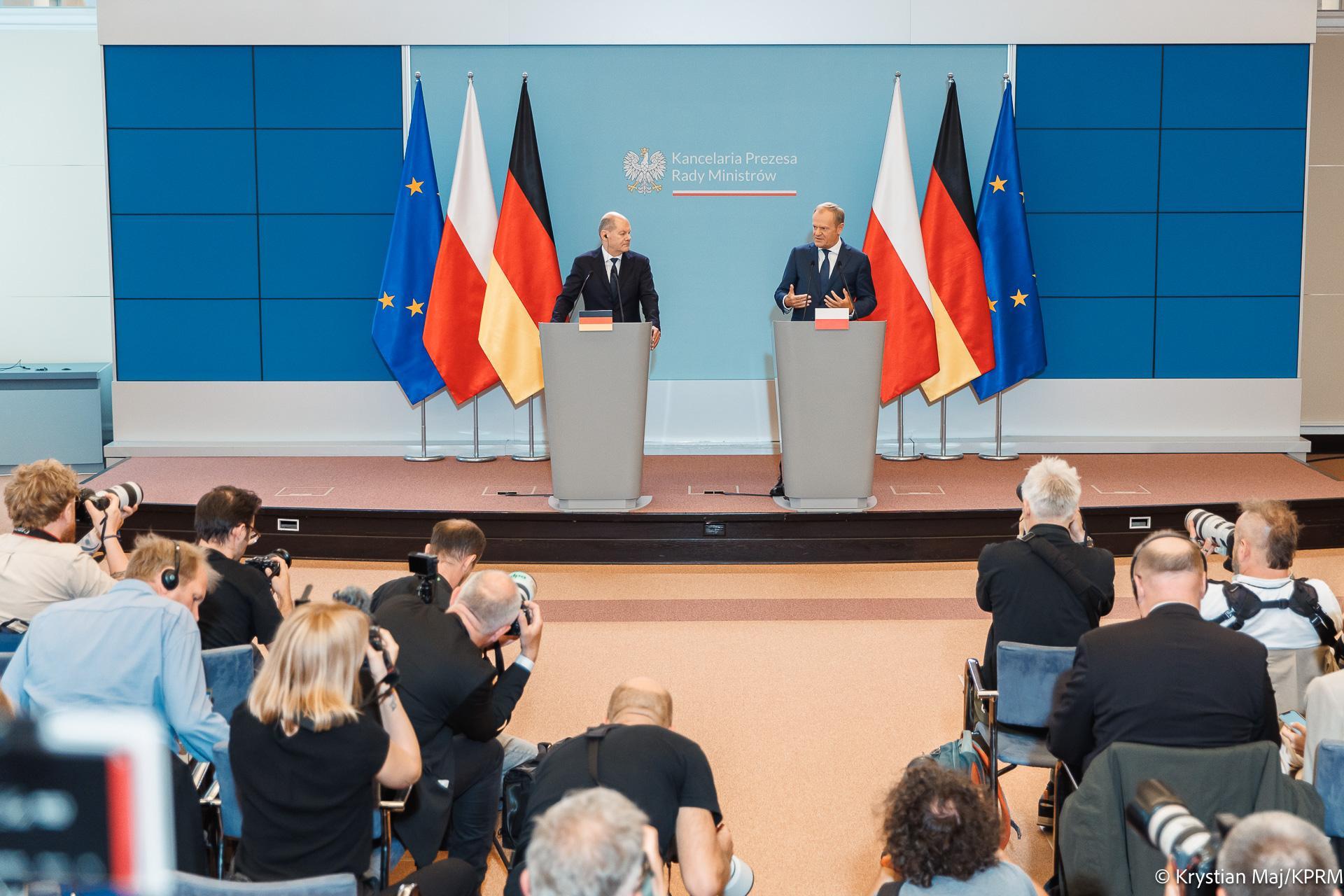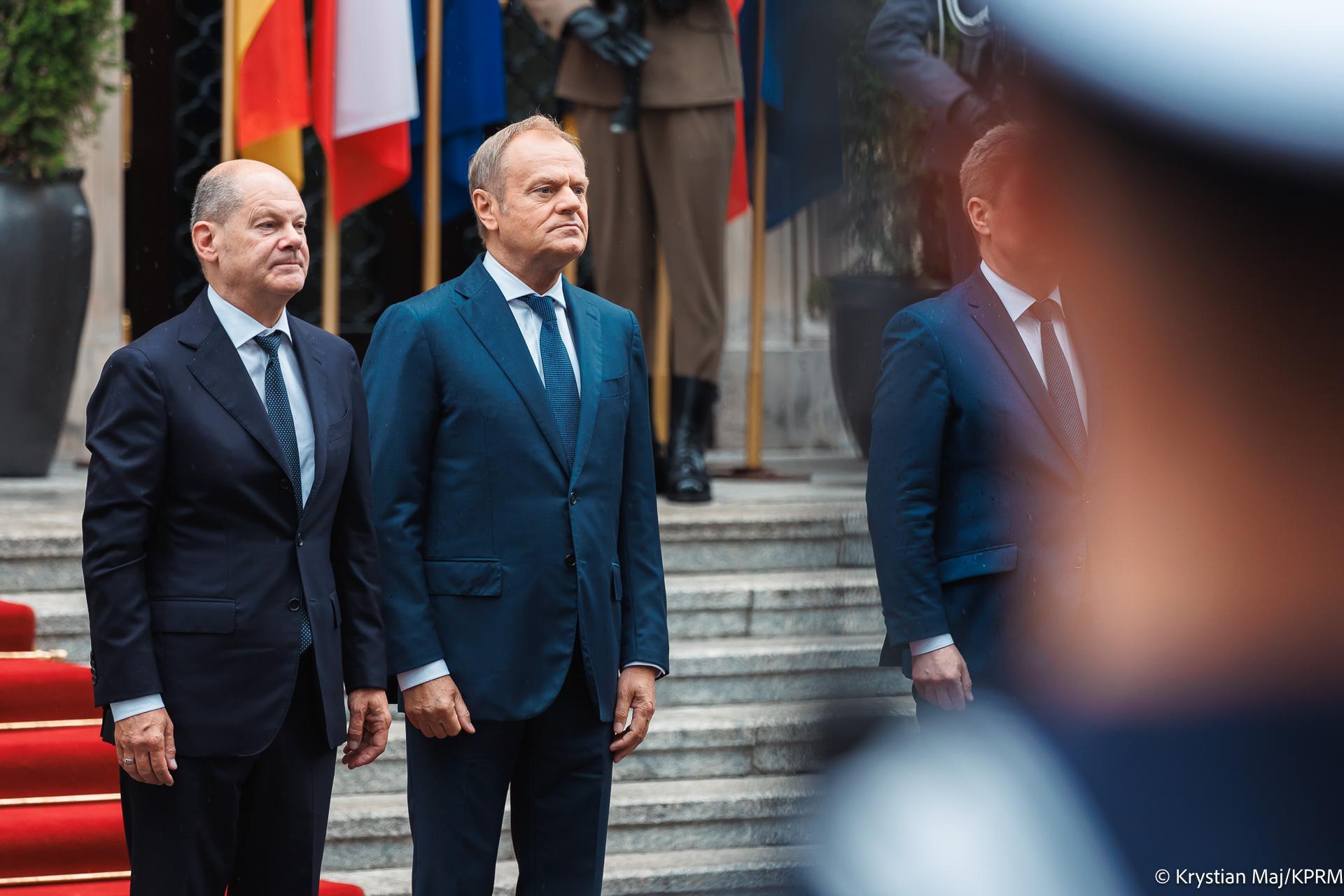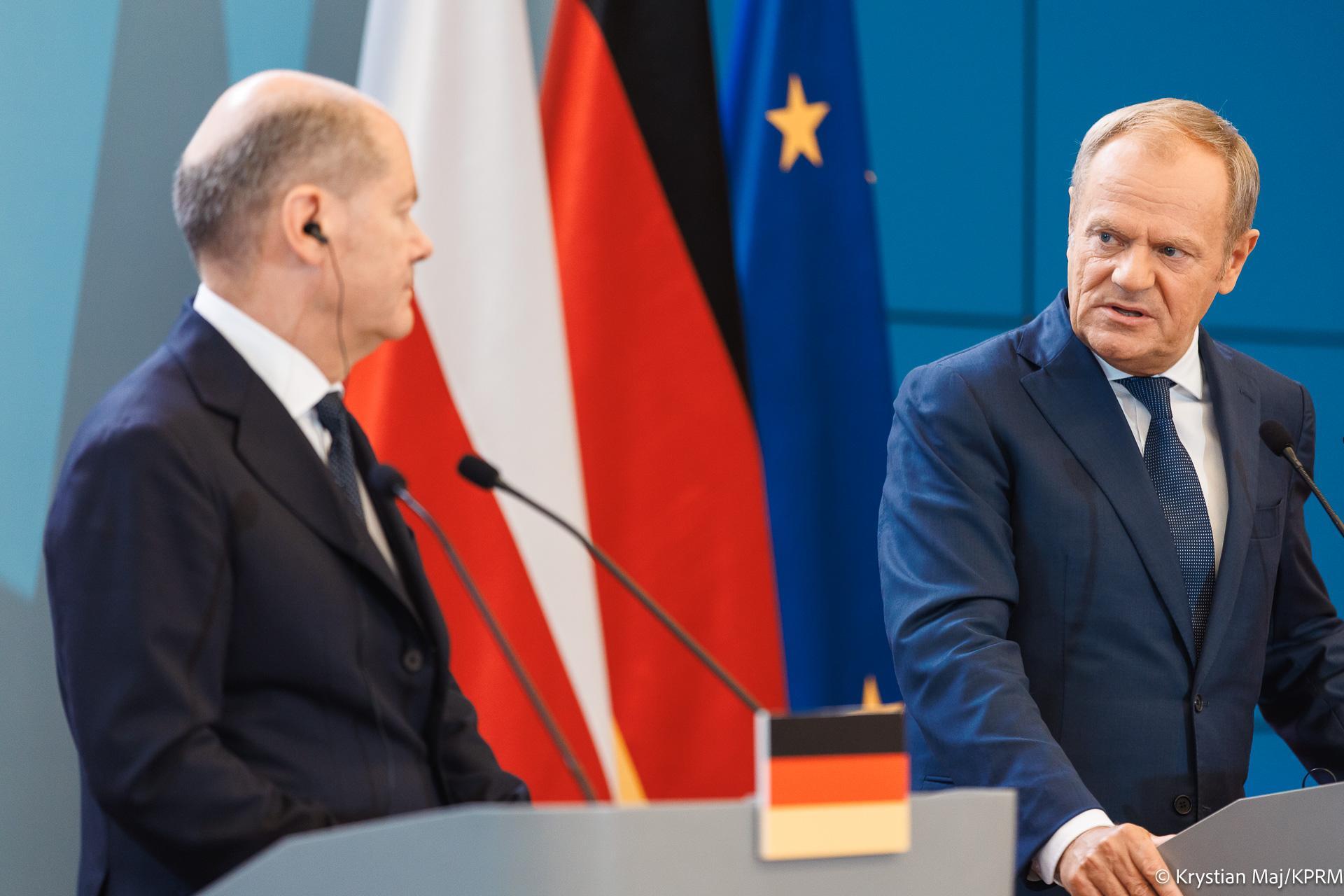New opening in German-Polish relations
02.07.2024
The main issues tackled during the Polish-German intergovernmental consultations held at the Chancellery of the Prime Minister concerned security and military cooperation, combating irregular migration, as well as safeguarding the external border of the EU. The meeting was chaired by Prime Minister Donald Tusk and Chancellor Olaf Scholz. The politicians also adopted the German-Polish Action Plan - a joint declaration to establish closer cooperation between the states. The most recent Polish-German intergovernmental consultation took place six years ago.

Meeting of the Polish and German government delegations
The Polish and German government delegations met at a key juncture. The war in Ukraine has been raging for two years and the tensions in the region are growing.
“We intended to build new momentum and stimulate the German-Polish cooperation. Given the circumstances of Russian aggression against Ukraine and political decomposition, there should be no doubts regarding the importance of mutual cooperation. . . In these trying times, we are making steps to be able to once again speak of German-Polish friendship with full conviction,”
said Prime Minister Donald Tusk at a press conference following the intergovernmental consultations.
As Chancellor Olaf Scholz pointed out, Poland and Germany are good neighbours, close partners and reliable friends.
“We wanted to usher in a new dynamic of our partnership. We see great potential for even closer cooperation in many areas. We have adopted the German-Polish Action Plan today, with a selection of issues and projects on which we will work together in the coming years,”
said the German chancellor.
Focus on Europe's security
Europe as a whole, and Poland in particular, faces the threats stemming from sharing a border with Russia, Belarus and the defending Ukraine. This situation poses very serious and unprecedented challenges for our country.
“We are facing an increasing threat of sabotage and diversion within our borders. That is why I am particularly concerned about security in the broadest sense of the word - military cooperation, irregular migration, cooperation to ensure border security for the EU,”
Prime Minister Donald Tusk pointed out.
As he recalled, history teaches us that Poland and Germany should have a special sense of responsibility for the safety and security of Europe.
“Poland, as one of the greatest victims of World War II, as well as Germany, who made it happen, are free nations these days; that is why we should work together to ensure that Europe is safe, that the tragedy will never happen again,”
said the Prime Minister.
That is why it is crucial for the whole of Europe to understand that security should be the key priority now.
Joint European projects
Prime Minister Donald Tusk and Chancellor Olaf Scholz also discussed the decisions made by the EU leaders at the last European Council.
“I was pleased to hear from the Chancellor of the Federal Republic of Germany that his country is ready to bear the responsibility for ensuring the security and impermeability of our external border, along with other EU Member States,"
stated the Polish Prime Minister.
Donald Tusk also mentioned the regulations recently adopted by the European Council, which make it clear that the EU is ready to commit to the Shield East project - ensuring effective defence of Europe's eastern border and its skies.
“The project is explicitly mentioned in the conclusions. I would like everybody to verify by reading conclusions 24 and 26, as well as the corresponding paragraphs in the strategic agenda that the European Union has adopted. Following the European Council meeting, no one doubts that Europe should bear responsibility for the safety of the skies over Europe,”
the Prime Minister stated.
Olaf Scholz acknowledged that the security of Germany and Poland are inextricably linked.
“Poland's security is tantamount to Germany's security. This is the guiding principle for us as neighbours and allies within NATO and as partners in the European Union. Our strength lies in solidarity and cooperation. That is why we will bolster our cooperation in the areas of security and defence in order to boost our capabilities. This means that we want to take the lead in the Baltic Sea region within NATO, and take charge in protecting NATO’s eastern flank,”
the German Chancellor claimed.
Funding joint defence
Poland and the Baltic States are currently pushing forward with an infrastructure project, which constitutes part of the Shield East Initiative intended to strengthen the security of the EU's eastern border. The completion of this initiative is also in Germany's interest.
“Both our countries are victims of a wave of migration, orchestrated by Putin and Lukashenko. Poland sees its border assaulted daily, while Germany is the destination for irregular migration. We have a shared interest in tackling this issue effectively,”
Donald Tusk explained.
There is no doubt that Poland and Germany will work together for bilateral solutions and for the European Air Shield.
“Our participation in the existing European air defence initiative should make it easier to see it come to fruition, resulting in an European Iron Dome, ensuring the safety of our skies,”
said the Prime Minister.
Mr. Tusk also pointed out that all European countries should contribute to the funding of such initiatives.
Value-driven collaboration
The Polish-German partnership also touches upon the key foundations of Europe and its values, including the concept of a German-Polish cooperation to stabilise Europe as a political organisation.
“We want our actions to reinforce the fundamental values that are under attack by radical and extremist parties across all of Europe. The relationship between Poland and Germany could serve as a role model for many other countries in the world,”
the Prime Minister pointed out.
These issues were also discussed by Polish ministers and their German counterparts throughout the day.
Germany's gesture of goodwill towards Poland
The Warsaw talks also concerned history, with Germany offering a gesture of goodwill to Poland for the damage and losses caused by German aggression and occupation, including the initiative to build a Polish-German House in Berlin.
As Prime Minister Donald Tusk pointed out, talking about righting the wrongs should contribute to building good relations and should never again be used as a weapon in a diplomatic war. He noted that there is no money in the world that would compensate Poland for the losses resulting from the war.
“From the legal standpoint, the issue of reparations has been covered in decisions and treaties; however, the interpretations of the actual meaning varies. Today, I heard key declarations and statements that confirm the widespread conviction that just because Poland was historically forced to give up its war reparations does not erase all the tragic losses, death and destruction that Poland suffered as a result of the German attack”,
the Prime Minister pointed out.
It is key to seek solutions “from the point of view of mutual understanding, rather than a political stand-off.”
German-Polish Action Plan
In Warsaw, the Polish and German governments signed a declaration of their intent to work together and deepen their close relations. Both countries want to find answers to the challenges of our time in order to shape the European future without forgetting the past.
In addition to security issues, the Polish and German governments also declared their intent to work together on economic matters, including energy, industry, as well as the green and digital transformation. Both countries will also collaborate on other matters, including transport and infrastructure, policing and border security, healthcare, science, youth education, justice, urban development, as well as food and agriculture.
Materials
German-Polish Action PlanGerman-Polish_Action_Plan.pdf 0.32MB

